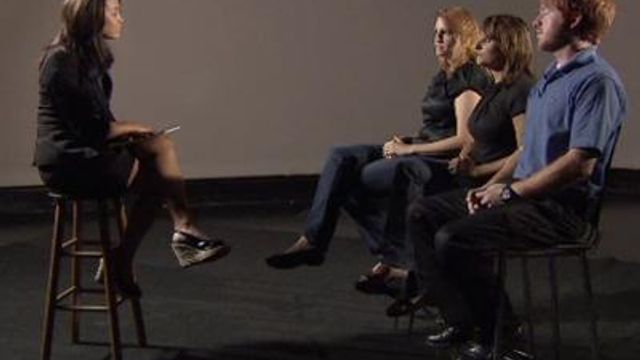Parents of Kathy Taft's killer might have saved his life
Five weeks after they sent Jason Williford to prison for life for the March 2010 rape and beating death of state school board member Kathy Taft, three jurors say their decision might have been different if it weren't for his family.
Posted — Updated"I felt bad for his family. I couldn't care less about Jason Williford," said Derrick Atwood, a mechanical engineer who served as a juror during Williford's lengthy capital murder trial, which ended June 8 after 12 days of testimony.
"I think the decision would have been a lot different if his family wasn't as caring and showed the love that they had for him," he said. "I think it would have been bad for them to see their son die."
Atwood, Nicole Donahue, Ann T., and nine other men and women spent more than five hours deliberating Williford's fate for the March 6, 2010, attack on Taft as she recovered from cosmetic surgery at the Raleigh home of a friend.
The 62-year-old from Greenville – a mother of four and grandmother of five – died from her injuries three days later.
Williford, 32, an amateur musician who lived about a block away from where Taft was staying, could have faced the death penalty after being convicted on June 1 of first-degree murder and first-degree rape.
The jury's sentencing recommendation came seven days later after emotional testimony from Williford's father and grandmother that humanized him and differentiated him from the state's characterization of a brutal, violent man whose history of home break-ins and violent sex escalated to rape and murder.
Williford's mother also testified about how she and her husband repeatedly tried to get their son help for his mental struggles, which included addiction, anger and sexual deviancy – all factors that defense attorneys contended led to Taft's attack.
"Nobody knew that a lot of those things were going on, internally, with him," Donahue, a software sales executive, said.
None of the jurors, Atwood said, disagreed that Williford was guilty of first-degree murder or rape.
Their biggest hang-up was four hours of discussion on a first-degree burglary charge and whether Williford knew anyone was inside the house when he broke into it.
For Ann T., a human resources manager, the sentencing phase of the trial was the most difficult.
"On one side, I wanted justice for Kathy and for the Taft family, and I put myself in their shoes," she said. "But on the other hand, I had to think of the Williford family. They loved their son, and they did nothing wrong. They tried as hard as they could to help their son, and the pain that they would feel if he were put to death was something that just tore me up inside."
Factors in Donahue's decision for life in prison included the comfort that Williford would never get out of prison and that his life had changed since being arrested.
"He's 32," she said. "Is there a chance that he could do some good in this world?"
They knew they made the right decision when Taft's children spoke during sentencing at the end of the trial about their mother and thanked jurors for their service.
"To me, that's what gave me the most comfort," Atwood said. "When they looked at us and said, 'Thank you. We're OK. Our family can move on now,' that's when I knew everything was all right."
"I think, if they had had a different reaction, I would probably be feeling a little regret at this point, but I don't," Ann T. added.
Still, the three have no sympathy for Williford, whom his attorneys characterized as being "mentally damaged" at birth because of a histories of mental illness in both of his parents' families.
"He's a despicable human being, honestly," Ann T. said. "That's what I think of him."
Atwood became frustrated when Superior Court Judge Paul Gessner gave Williford an opportunity to speak at his sentencing but Williford declined.
"He just said no and walked away. That is when I just started burning up inside," Atwood said. "I was just so mad, and I was just glad it was over and done with. I thought that was just the most cowardly thing he could do."
Five weeks later, the trio is still coming to terms with the testimony they heard and photos of Taft and the crime scene that they saw.
"One of the hardest parts was looking at the images that we had to see of Kathy and thinking, 'How could another human do that to another human?'" Atwood said. "I would sometimes get angry inside. I don't understand."
"When you're living in the reality of a crime like that, it invades every fiber of your life," Ann T. said.
She still has anxiety when she thinks about the case.
"Those were pretty rough days, especially because of the nature of the crime," she said. "He didn't know her. Going home after hearing that, you hear noises in your house, and you can't sleep after that."
But the experience has created a unique bond that only they and their fellow jurors can experience.
It's also taught them lessons and changed their perspectives on life.
"You appreciate things a lot more, and that's the good thing I'm going to take out if this," Atwood said. "Just look at the good things in life and make everything count."
Related Topics
• Credits
Copyright 2024 by Capitol Broadcasting Company. All rights reserved. This material may not be published, broadcast, rewritten or redistributed.






